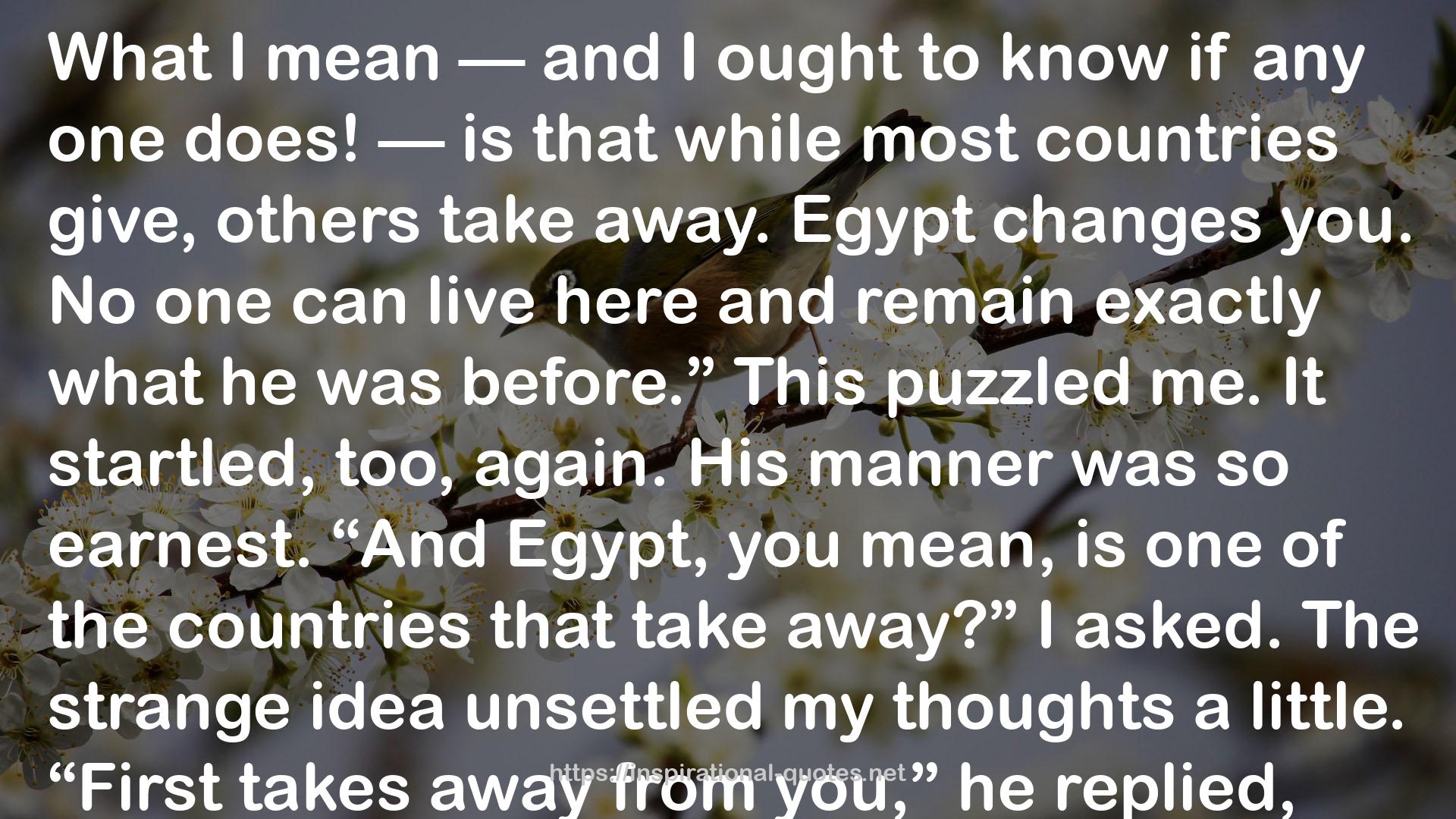" What I mean — and I ought to know if any one does! — is that while most countries give, others take away. Egypt changes you. No one can live here and remain exactly what he was before.”
This puzzled me. It startled, too, again. His manner was so earnest. “And Egypt, you mean, is one of the countries that take away?” I asked. The strange idea unsettled my thoughts a little.
“First takes away from you,” he replied, “but in the end takes you away. Some lands enrich you,” he went on, seeing that I listened, “while others impoverish. From India, Greece, Italy, all ancient lands, you return with memories you can use. From Egypt you return with — nothing. Its splendour stupefies; it’s useless. There is a change in your inmost being, an emptiness, an unaccountable yearning, but you find nothing that can fill the lack you’re conscious of. Nothing comes to replace what has gone. You have been drained.’’
I stared; but I nodded a general acquiescence. Of a sensitive, artistic temperament this was certainly true, though by no means the superficial and generally accepted verdict. The majority imagine that Egypt has filled them to the brim. I took his deeper reading of the facts. I was aware of an odd fascination in his idea.
“Modern Egypt,” he continued, “is, after all, but a trick of civilisation,” and there was a kind of breathlessness in his measured tone, “but ancient Egypt lies waiting, hiding, underneath. Though dead, she is amazingly alive. And you feel her touching you. She takes from you. She enriches herself. You return from Egypt — less than you were before.”
What came over my mind is hard to say. Some touch of visionary imagination burned its flaming path across my mind. I thought of some old Grecian hero speaking of his delicious battle with the gods — battle in which he knew he must be worsted, but yet in which he delighted because at death his spirit would join their glorious company beyond this world. I was aware, that is to say, of resignation as well as resistance in him. He already felt the effortless peace which follows upon long, unequal battling, as of a man who has fought the rapids with a strain beyond his strength, then sinks back and goes with the awful mass of water smoothly and indifferently — over the quiet fall. "
― Charles Maturin , Melmoth the Wanderer
